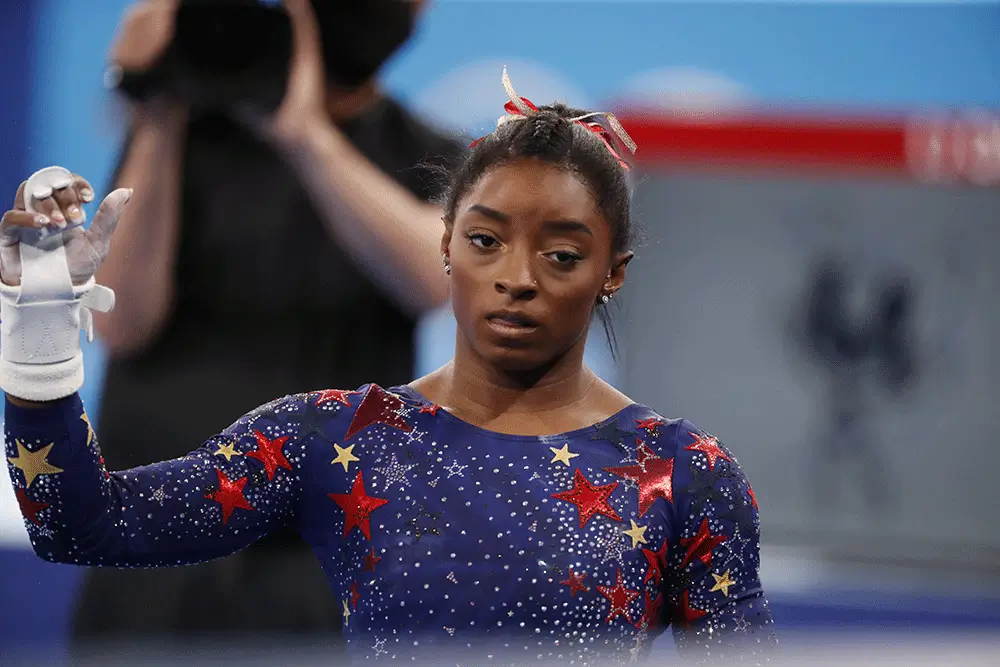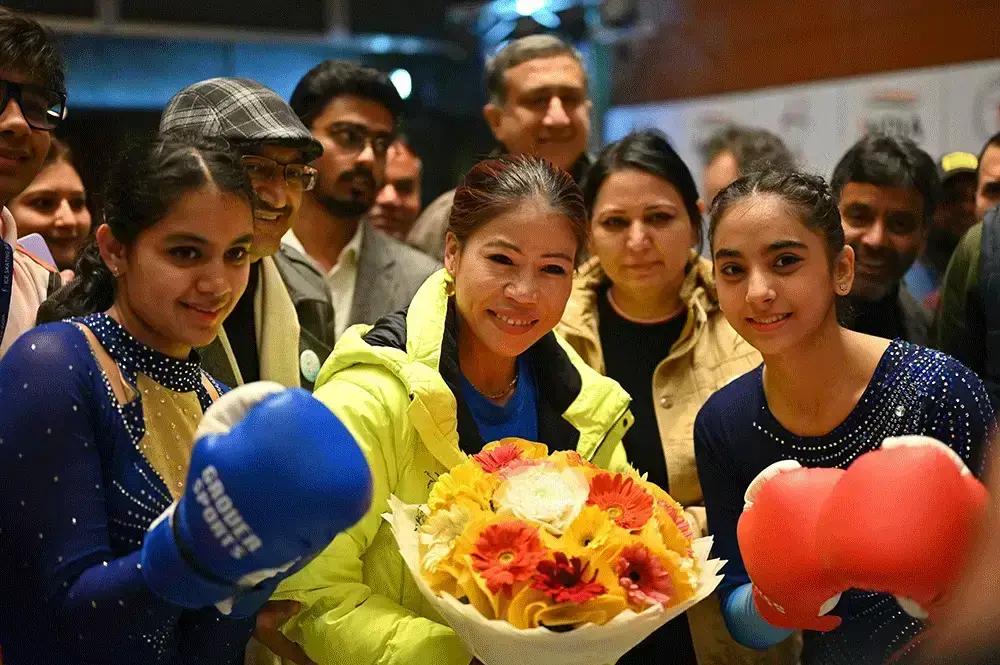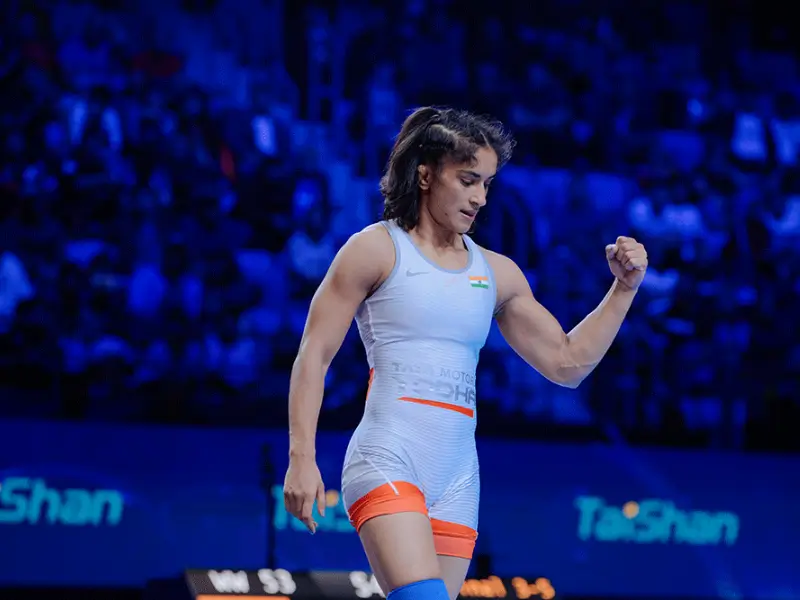Olympic competitors are taking center stage at the ongoing Paris 2024 Olympic Games to demonstrate their excellence and commitment to judges and fans worldwide. Following the Olympics this year, a growing number of athletes have taken to social media and the media to talk about their mental health struggles and the unique obstacles they face as Olympic athletes.
It should come as no surprise that the stress of large athletic events like the Olympics has a negative impact on athletes' general and mental health. The University of Oxford reports that among athletes at this level, mental health issues including anxiety and depression can reach 45% , and adolescents participating in top sports had a 14% higher risk of eating disorders during their adolescence.
Olympians are the pinnacle of athletic achievement, and the Olympics provide them a platform to proudly represent their nation and showcase their abilities. Even with their triumphs and celebrations, some athletes, for example, may experience disappointment if their goals are not realized, like failing to earn a medal. These setbacks can have a significant negative influence on athletes' mental health, and prompt treatment may be required to address this issue.
Whether one is an athlete or not, mental health affects all facets of life, and developing positive mental health habits to live a longer, healthier life should be a top goal for everyone.
Performance Anxiety at the Olympics
For the dreams of an athlete, nothing can supersede having their feet on that global stage; it is inarguable that the Olympic Games are at their peak. With this intense pressure to be successful, many of the players find themselves faced with various mental health issues including anxiety, depression and burnout. This is where sports therapy and mental health support become vital.
A sports therapist provides services such as physiotherapy, massage and injury prevention & rehabilitation. It comprises mental training, essential for focus and confidence that you will not fall apart. By combining physical health support with mental wellbeing, athletes are enabled to deliver their very best performance in spite of the deeply significant pressures they face.
Importance of Sport Therapy in Physical Health
Sports therapy is a lot more than just “rubbing it out” – It deals with the task of preventing and taking care of injuries so that athletes can compete at their best. Likewise, training and competition demands can put an athlete at risk of overuse injuries – left untreated this one could also be career-ending.
The sports therapists collaborate closely with athletes to tailor specific injury prevention regimes that incorporate aspects such as resistance training, flexibility exercises and recovery protocols.
For instance, look at Indian badminton star P.V. Sindhu, who has always upped her game when required. Apart from her skill and hard work, it is due to the attention she paid to physical health.
Sindhu is surrounded by a team of sports therapists who keep an eye on her to free from injury and remain mandatory for long international trips. This includes frequent physiotherapy sessions, as well as strength and conditioning workouts, with rehabilitation strategies tailored to each individual.
In the same manner, Vinesh Phogat, another Indian wrestler from the famous Phogat family has also proven to us how vital Sports Therapy is in anybody's career circuits. In the Rio 2016 Olympics, Vinesh suffered a severe knee injury way back and it was an extremely bad period in her career.
She had to undergo a long period of physical rehabilitation as sports therapists helped her redevelop strength, movement and confidence before she was ready to return. But her determined process of recovery, along with the mental conditioning, got her back on track and she made a fantastic comeback to win gold at the last Asian Games.
In Paris, the Olympics are tough fights and sports therapists will play an important role in keeping athletes physically fit. Unfortunately, injuries happen in sports and sometimes how quickly you can manage them or bounce back from one makes the difference between a win and a loss.
Mental Health Support Integrated
Body health is a need but mental health cannot be subsided. While the stigma that surrounds mental health is not new, in recent years there has been an increased acknowledgement — or at least conversation about — the unique set of challenges elite athletes face when they reach such heights as a stage like the Olympics.
Simone Biles Tokyo 2020 Olympics: A prime example of this is Simone Biles at the Tokyo 2020 Olympics. Gymnastics superstar Biles made headlines for stepping away from several events due to mental health issues. Her choice to step aside placed a spotlight on mental health in sports, illustrating the necessity for increased athlete resources.


Mary Kom, the legendary Indian boxer: Who has struggled with the pressure of expectations, and her sport takes a mental toll alongside its physical demands — these days she is seeking help in counseling and also doing some form of mental conditioning. She too went through huge mental health struggles post her injury.
Vinesh Phogat said... The expectations to get back were heavy, and the fear of getting hurt again began generating a psychological toll. But she said with the help of sports psychologists and education about mental health, I have learned how to work through it. You would think that visualization (helping her mentally rehearse the matches) and mindfulness practices to improve focus and keep calm under pressure were a huge part of it.
Sports psychologists, counselors and support networks will be on hand for athletes at the Paris Olympics. They play an important role in helping athletes deal with stress, anxiety, and other issues affecting mental health. Mental conditioning and visualization are two key areas in sports therapy that help athletes maintain their focus, composure, and confidence during critical moments on the field.
Bajrang Punia - Case Study (Aspiring Indian Wrestler)
India's wrestler Bajrang Punia, who won a gold medal at the 2018 Commonwealth Games, exemplifies how sports therapy can support mental health on the international stage. As one of the best in wrestling, Punia, with his eyes set on Olympic glory in Tokyo, has not been resting.
While preparing for the Paris 2024 Olympics, Punia worked with his sports therapy team to perfect his physical conditioning while keeping his mental state sharp. This involved physical therapy to manage and prevent injuries, alongside psychological work to strengthen his focus and resolve. His team emphasized the importance of rest and proper nutrition to ensure he peaks at the right time.
It has been the mental part of it that probably is the most significant evolution in Punia's training. Wrestling is an intense sport, it demands you to place your body in great physical discipline and mental capacity. Punia has also been working with sports psychologists to develop different coping mechanisms when it comes to dealing with stress and anxiety , something that is important during high-pressure matches.
On the other hand, Vinesh Phogat, blessed with two Olympic cycles through years of pain and recovery showed what winning can feel like on any given day. The psychological aspects she had to overcome during the recovery process were just as massive, if not sometimes even bigger than all of her physical challenges.
However, with the assistance of sports psychologists, Vinesh found her way back from these lows and her return to action shows how a complete solution when it comes to sports therapy meets mental health support can work wonders.
The Technology of Sports Therapy and Psychology
Tech will come to bear on sports therapy and mental health support at the Paris 2024 Olympics as well. Physical and psychological metrics can be traced in real-time with wearable devices such as fitness trackers or heart rate monitors for athletes, and their teams. Such training load data can be used to modify training programs, monitor resting status and even identify impending problems before they become significant issues.
An athlete, for instance, might use biofeedback devices to measure their level of relaxation and develop strategies around that. Other latest technologies consist of digital fact (VR) and AR generation, which a player can use to practice visualization aboard intellectual education competencies escapement. Now these technologies are being towards sports therapy also so we can help athletes better this time.
Why Taking a Holistic Approach is Important
This relationship between sports therapy and mental health serves as a case in point of how the different dimensions regarding athlete well-being are all interconnected. Athletes must focus on holistic health and well-being to achieve maximum performance. A large team of professionals is involved in this, with sports therapists and physiotherapists supporting a wide spectrum from psychologists to nutritionists, as well as the coach for all aspects involving the athletes.
This kind of all-around development is also witnessing an emergence in India, even among the top-rung athletes. For sportspersons like P.V. Sindhu, Vinesh Phogat, Mary Kom and Bajrang Punia a lot of it depends on the support system they have in terms of high-performance facilities to bring laurels internationally. They have shown that to sustain athletic excellence, it requires more than the mundane hours of physical training although this is vital but also psychological preparedness and a healthy lifestyle.
The Postmodern Age : Bollywood and Forest Gump Style!
Looking ahead, it is probable that the crossover of sports therapy with mental health support will be even more key. India has slowly started to realize that athletes need as much support, if not more than any other person does regarding their mental well-being besides physical injury.
To a certain extent, the success of Indian athletes at the Paris 2024 Olympics will be defined by both their physicality and mental game. India could ensure that its athletes are well-prepared to compete internationally, provided it continued to invest in sports therapy and support for mental health .
Mental health is where sports therapy derives its root, and in an environment as pressurized as the Olympics, this level of elite performance could be no more important. This will only be more apparent as we near the end of Paris 2024 Games — that athletes at the very top need to hit higher physical and mental benchmarks.
It uses a mix of sports therapy, mental conditioning, and technology to get the most out of an athlete while also helping ensure they are on the path to long-term health. In this modern era, the successful labor for athlete well-being offers us athletes a holistic approach beyond their excellence and, very importantly, Indian talents such as P.V. Sindhu, Vinesh Phogat, Mary Kom, and Bajrang Punia are among those embodying this perspective.
Solh understands. We offer a variety of features to help you invest in self-care.
Journaling for Self-Reflection: Sometimes, not being able to care for yourself can come from a lack of self-understanding. Solh's journaling feature allows you to explore your thoughts and feelings in a safe space. By reflecting on your experiences and desires, you can gain clarity on what is stopping you from self-care.
Anonymous Support Groups: You are not alone. Solh's anonymous support groups connect you with others who understand the struggle. Share your experiences, find comfort in solidarity, and discover new perspectives on overcoming the hurdle to indulge in self-care.
Solh Buddy: Feeling lost or disconnected? Your Solh Buddy, a personalized virtual companion, is here to provide encouragement and support along the way. It can offer prompts, celebrate your victories, and remind you of your strengths as you navigate the journey towards self-care.
Talk now: Sometimes self-care can make you feel overwhelmed. Solh’s Talk Now feature gives you access to dedicated counselors to help you navigate such situations.
Solh believes in a unique approach to introducing self-care. We empower you to take charge of your well-being by offering a variety of tools. Explore Solh today and discover the power of self-reflection, connection, and support in overcoming any problem of the mind. You are not alone on this path.








